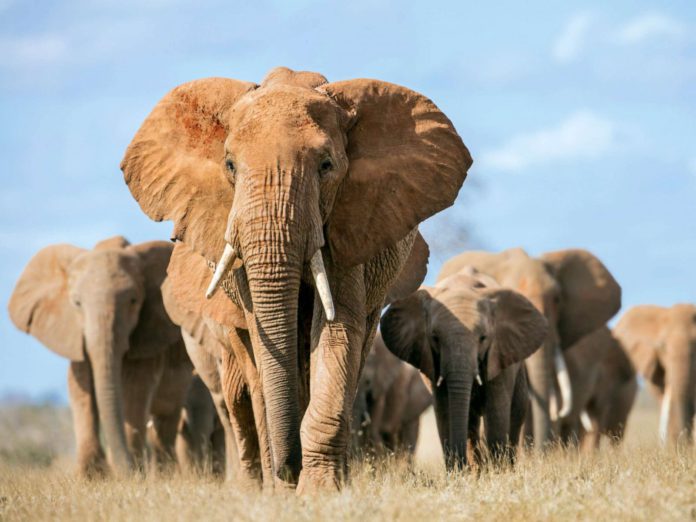
The Wildlife Unit of the Forestry Commission has cautioned communities within the Eastern Corridor to be on the lookout for an imminent elephant invasion, saying the huge animals will soon move out for food and water because of the dry season.
The animals are sometimes seen during the dry season in the Nabdam, Talensi and Bawku West districts of the Upper East Region, which are part of the Eastern Wildlife Corridor, where they destroy farmlands.
“Dry season is approaching and we are going to get the elephants more permanent here because as you move further up the Red Volta Valley, the weather becomes drier,” Alfred Kofi Bara, the Wildlife Officer in charge of the Eastern Corridor Wildlife of the Forestry Commission, said.
He said the elephants used to migrate from the Western Wildlife Corridor which covers Builsa and the Kassena-Nankana areas, “but for some time now, they seem to be more resident in the Eastern Wildlife Corridor.”
The Eastern Wildlife Corridor covers about eight political districts stretching from the Bongo District through Nabdam, Talensi, Bawku West, Binduri, Garu, Tempane and the East Mamprusi districts.
“As you move down the Red Volta towards the White Volta, we have more permanent pools of water during the dry season that attracts them here. We also have much more luxuriant vegetation, so apparently they turn to stay here more,” he said.
Mr. Bara added “the elephant is a very intelligent animal and has good sense of smell, sense of hearing, but poor eye sight so any colour that improves its vision is a threat to you the person with the colour.”
He appealed to the public not to get close to the elephants, saying “we should avoid watching them when dressed in bright colours like yellow, red and white or any colour that is bright enough to improve their vision.”
“We are appealing to all stakeholders to support Wildlife control, especially any invasion of elephants because we alone cannot do that.”
Mr. Bara said his outfit was trying its best to sensitize communities to how to take precautionary measures when the animals are on sight.
